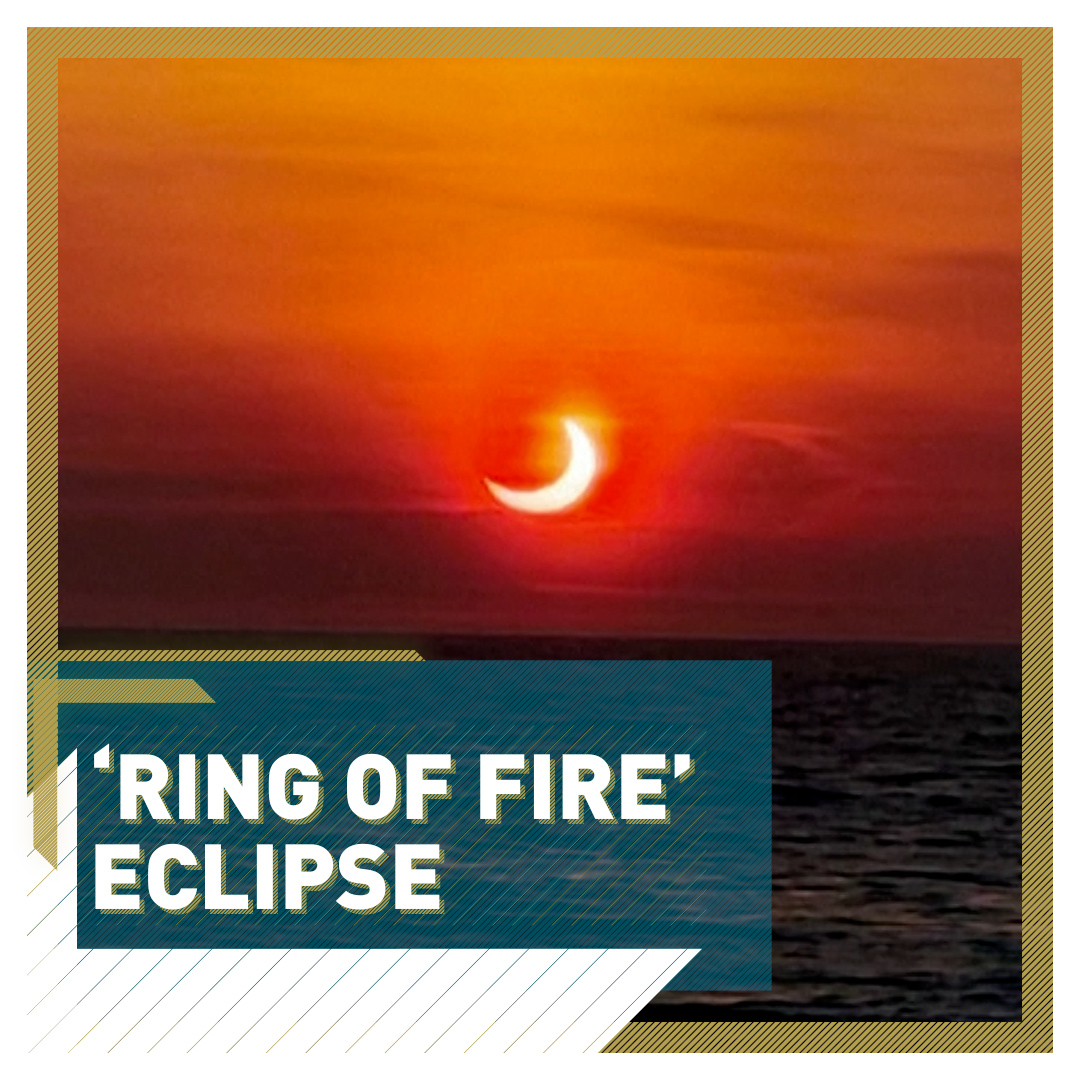00:42

For a brief period on Thursday, people living in the northern hemisphere got to witness a rare sight – an "annular" solar eclipse.
It's when the moon obscures part of the sun, causing the visible part of it to appear like a "ring of fire."
Generally, people need to use protective eyewear to see an eclipse, as it's dangerous to look directly at it.

A man watching the solar eclipse through a monocular in southern Spain. /Reuters/ Jon Nazca.
A man watching the solar eclipse through a monocular in southern Spain. /Reuters/ Jon Nazca.

A view of the solar eclipse from a high rise building in New York City. /AFP/Stan Honda
A view of the solar eclipse from a high rise building in New York City. /AFP/Stan Honda

People watching the eclipse from London. /AFP/ Niklas Halle'n
People watching the eclipse from London. /AFP/ Niklas Halle'n

A view of the eclipse from Massachusetts, U.S. /AFP/ Joseph Prezioso
A view of the eclipse from Massachusetts, U.S. /AFP/ Joseph Prezioso
Not everyone got the same view. The best places to see the complete "ring of fire" were in the North Pole, northern Russia, northwest Canada and northwest Greenland, where 88 percent of the sun was obscured.
But "the farther southeast people are, the less the sun will be obscured," according to Florent Delefie of the Paris Observatory.
For example, in London only 20 percent of the sun was obscured during the eclipse.
Despite that, German power grids were braced for the event, expecting a drop of around 1 gigawatt (GW) in solar power output.
Source(s): AFP

